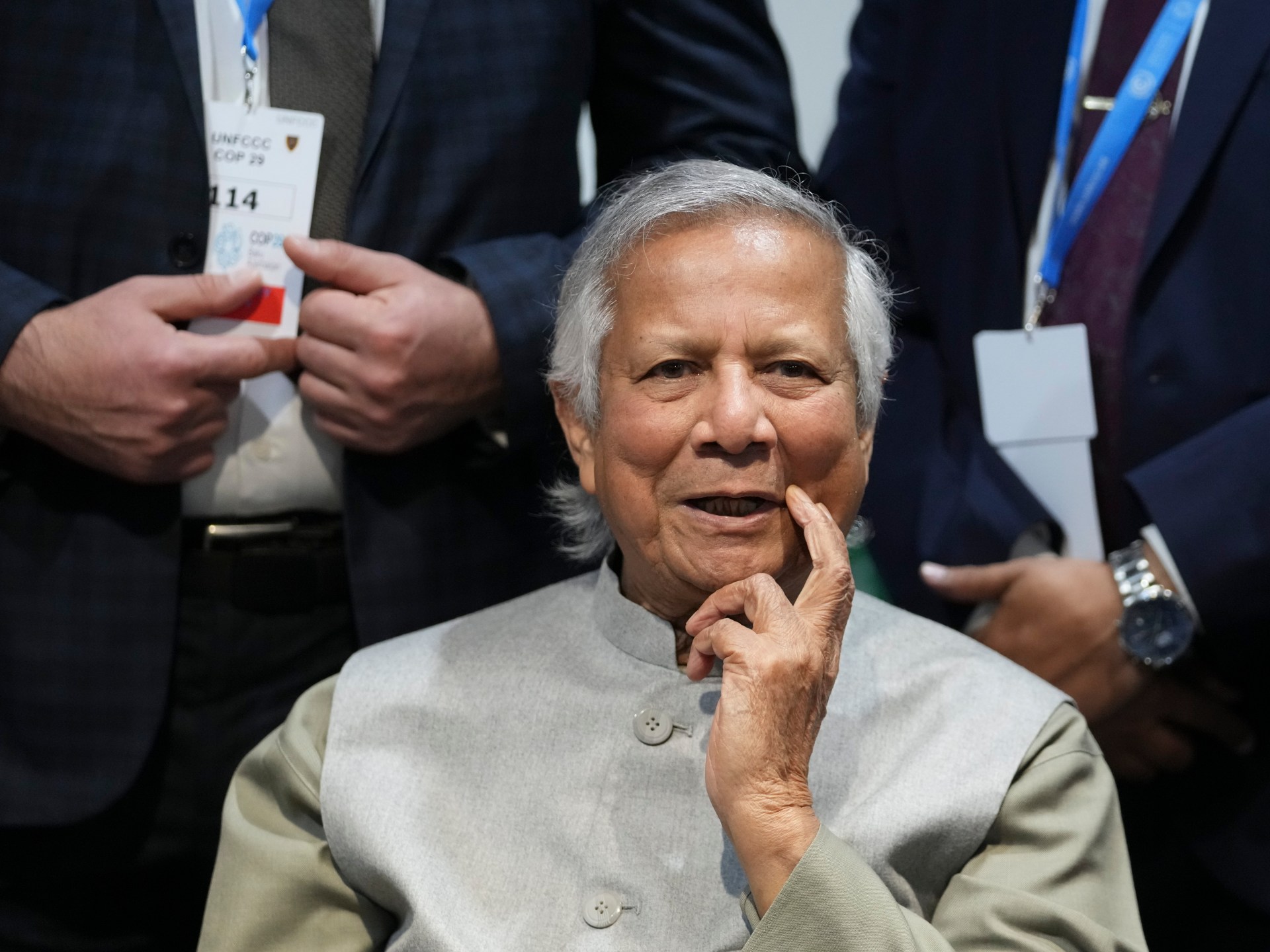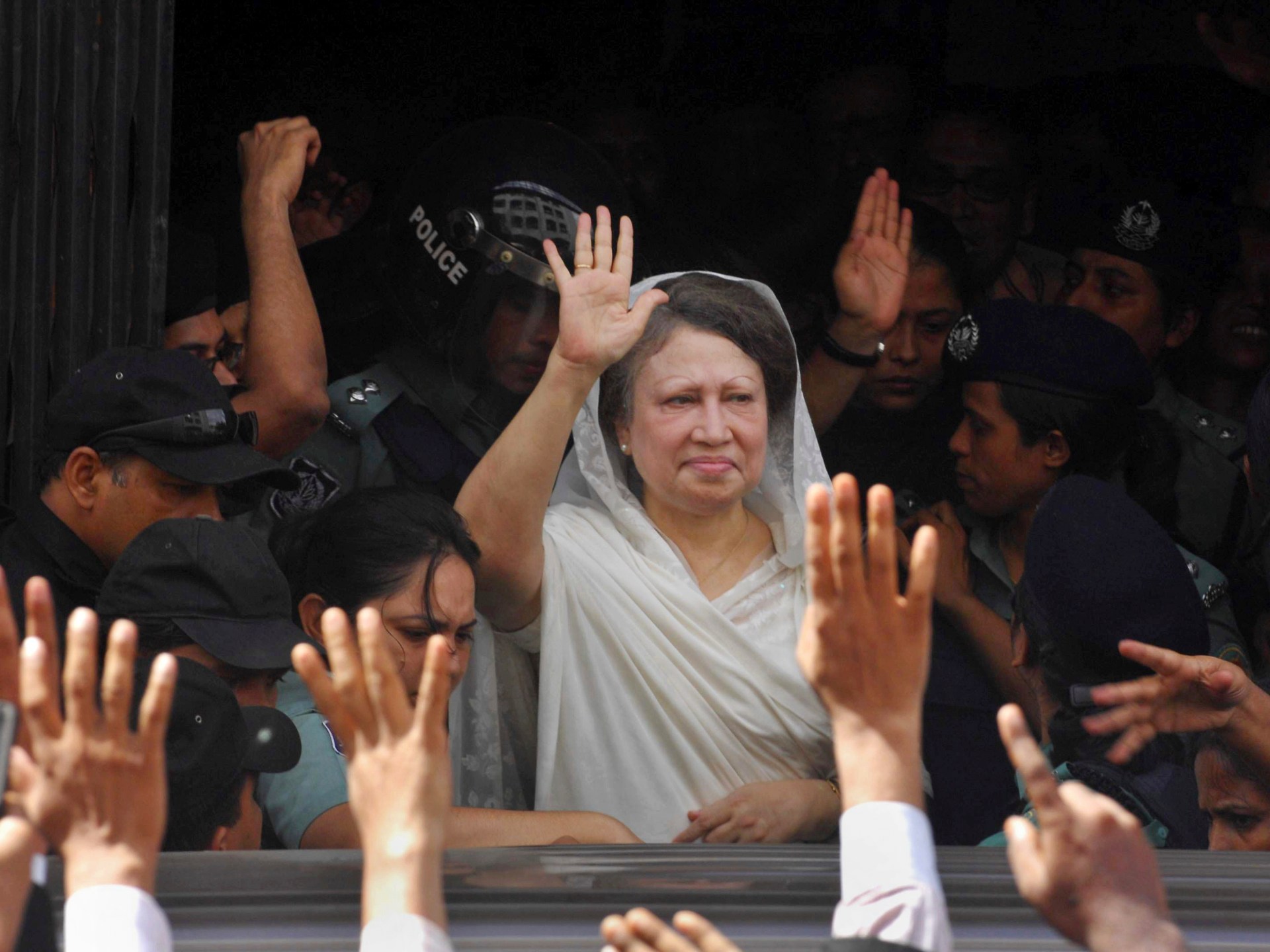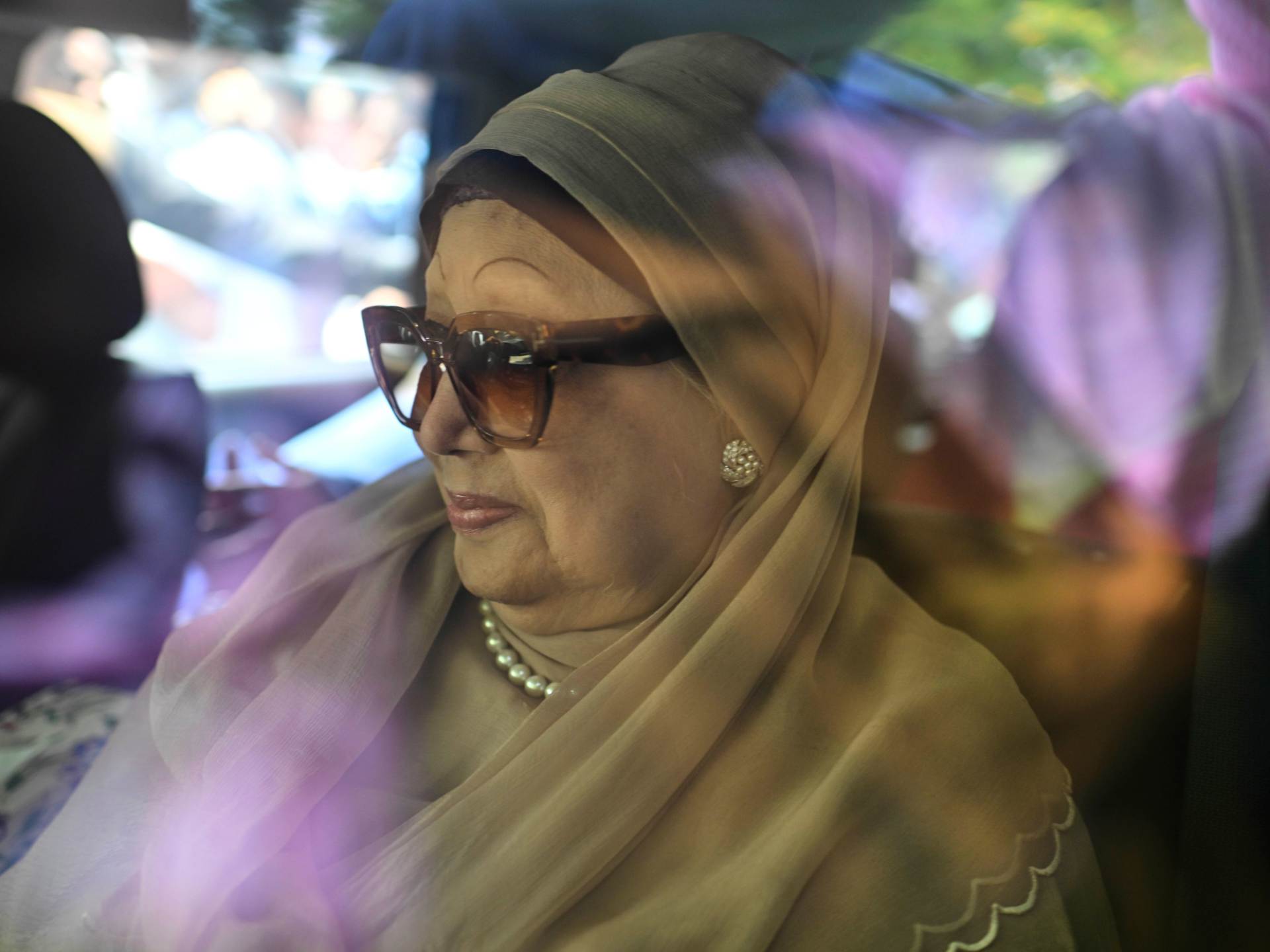
Bangladesh‘s interim leader Muhammad Yunus has appealed for the nation’s “patience”, pledging that general elections would be held after electoral and institutional reforms were completed in a televised address marking 100 days in office.
“I promise that we will hold the much-anticipated election once the necessary and essential reforms are complete,” said Yunus, who was tasked with leading the transitional government following the ouster of Prime Minister Sheikh Hasina in August.
The 84-year-old leader promised that an election commission would be formed “within a few days”, but did not provide a timeline for elections, citing the need for significant electoral and constitutional reforms.
“I request your patience until then. We aim to build an electoral system that will endure for decades. For this, we need some time.”
The country’s only Nobel laureate, who is renowned for his pioneering work in microfinance, Yunus has been tasked with rebuilding democratic institutions after Hasina’s 15-year rule.
Yunus was appointed “chief adviser” on August 9, following student-led protests that ended Hasina’s authoritarian rule.
Accountability
The deadly protests began in July after college students demanded the abolition of a controversial quota system in government jobs that they said favoured supporters of the governing party. Though Bangladesh’s top court scrapped the quota, the protests soon morphed into a wider call for the removal of Hasina’s “autocratic” regime, marked by allegations of widespread rights violations.
The government’s response was one of the bloodiest chapters in Bangladesh’s history as security forces beat the protesters, and fired tear gas and live ammunition on peaceful demonstrators, killing more than 1,000 people in three weeks and arresting thousands of others.
Yunus on Sunday said about 1,500 people were killed in the weeks of protests that brought down the Hasina government, adding that as many as 3,500 may have been forcibly abducted during her 15-year rule.
He promised an investigation into all human rights violations, including alleged enforced disappearances while Hasina was in power.
The interim leader said his administration will seek the extradition of the ousted prime minister from India, where she has been in exile since fleeing the student-led mass uprising in August.
“We will seek the return of the fallen autocrat Sheikh Hasina from India,” Yunus said. “I have already discussed the issue with Chief Prosecutor of the International Criminal Court Karim Khan.”
An arrest warrant has been issued for Hasina, 77, who fled to India via helicopter as demonstrators stormed her residence. She faces charges of “massacres, killings, and crimes against humanity” and has been summoned to appear in a court in Dhaka.
The extradition request could strain relations with India, a key regional ally that maintained close ties with Hasina throughout her tenure.
“We should be able to resolve it amicably between India and Bangladesh,” Yunus told Al Jazeera in an interview on the sidelines of the COP29 United Nations Climate Change Conference. “We draw attention to the Indian authorities that you are hosting her, that’s fine, but please make sure she doesn’t create problems for us.”
‘Monumental’ challenge
Yunus has been talking to political parties, including the Bangladesh Nationalist Party headed by former Prime Minister Khaleda Zia, Hasina’s main rival, which has sought an election in two to three months. The party believes it will form the next government as Hasina’s Awami League party and its allies face a political debacle following her ouster.
“As we move forward, we need to complete a lot of work,” Yunus said in his speech. “The train will reach its final station depending on how quickly we can lay down the railway tracks, and this will happen through consensus among the political parties.”
In his interview with Al Jazeera, Yunus acknowledged the challenges ahead.
“Bangladesh is deep in corruption because of the system that we had for the past 15 years – mismanagement, misgovernance, the destruction of our institutions,” he said, adding that rebuilding the system “point by point, sector by sector” will be a “big task”.
International Crisis Group analyst Thomas Kean has called the challenge facing Yunus “monumental”, warning that “cracks are emerging in the fragile alliance” that pushed him into power.
“For now, Yunus and his colleagues have widespread support, but popular expectations are double-edged,” the think tank said in a report on Thursday.
“If the interim administration falters in making reforms, the outcome is likely to be an early election with little progress; in the worst-case scenario, the military could assume power.”
Source
:
Al Jazeera and news agencies







